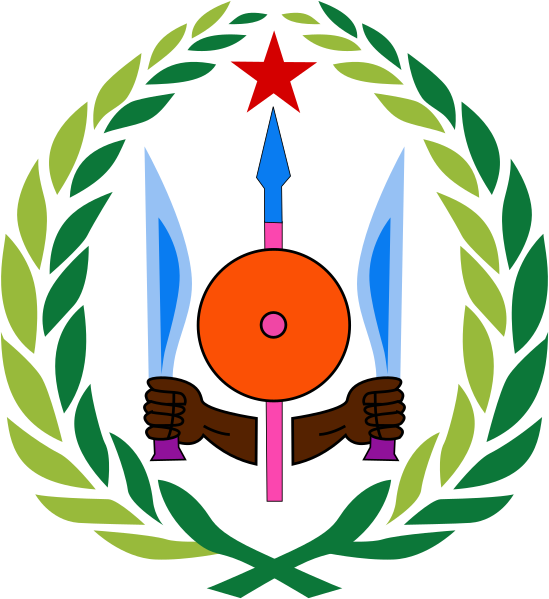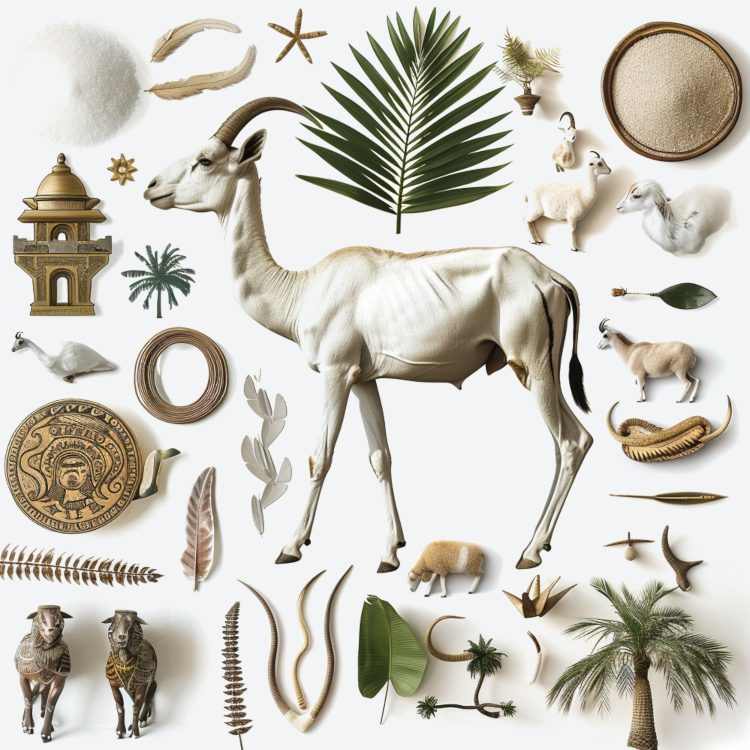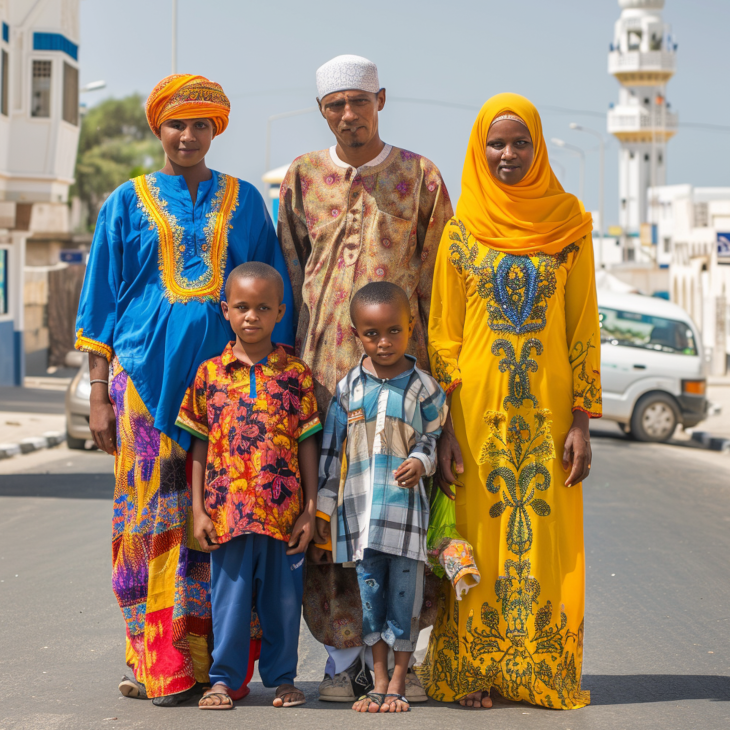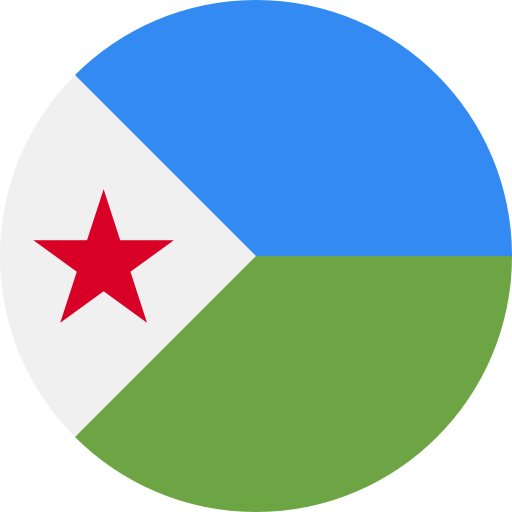About DJ

Location
Djibouti is a country located in the Horn of Africa, bordered by Eritrea to the north, Ethiopia to the west and south, and Somalia to the southeast. It also has a coastline along the Red Sea and the Gulf of Aden.
Capital
The capital city of Djibouti is Djibouti City, which is also the largest city in the country.
Population
Djibouti has a population of approximately 1 million people, making it one of the least populous countries in Africa.
Languages
The official languages of Djibouti are Arabic and French. Somali and Afar are also widely spoken by the local population.
Religion
Islam is the predominant religion in Djibouti, with the majority of the population adhering to Sunni Islam.
Geography
Djibouti is known for its arid and desert landscape, with rugged mountains and plains dominating the interior. The country is located at the junction of the African Plate and the Arabian Plate, resulting in geological features such as the Afar Triple Junction and the Great Rift Valley.
Economy
Djibouti's economy is largely based on its strategic location as a gateway to the Red Sea and the Gulf of Aden. The country serves as a key maritime and logistics hub, with significant port infrastructure and trade connections. Additionally, Djibouti is home to foreign military bases, including those of the United States, France, China, and Japan.
Currency
The currency of Djibouti is the Djiboutian Franc (DJF).
Politics
Djibouti is a republic with a presidential system of government. The President is both the head of state and the head of government. The political landscape is dominated by the People's Rally for Progress (RPP) party, which has been in power since independence in 1977.
Culture
Djibouti has a rich cultural heritage influenced by its diverse ethnic groups, including the Somali, Afar, and Issa. Traditional music, dance, and poetry are important aspects of Djiboutian culture, as are nomadic practices such as camel herding and pastoralism.

National Items of Djibouti
Addax Antelope
The Addax Antelope (Addax nasomaculatus) is an iconic symbol in Djibouti, representing resilience and the unique wildlife of the country's arid regions.
Djibouti Francolin
The Djibouti Francolin (Pternistis ochropectus) is a bird species native to Djibouti. It symbolizes the rich biodiversity and the country's commitment to wildlife conservation.
Salt Flats (Lac Assal)
Lac Assal, one of the saltiest bodies of water in the world, symbolizes Djibouti's unique geological features and natural beauty. It is also a vital economic resource due to its salt production.
Djiboutian Coffee
Coffee, especially traditional Djiboutian coffee ceremonies, symbolizes hospitality, cultural heritage, and social cohesion.
Goats
Goats are significant in Djibouti's pastoral economy. They symbolize sustenance, traditional livelihoods, and the agricultural heritage of the country.
Somali Architecture
Traditional Somali architecture, particularly in the old city of Djibouti, symbolizes the rich cultural heritage and historical significance of the region.
Foula (Traditional Dance)
Foula is a traditional dance in Djibouti, often performed during celebrations. It symbolizes cultural heritage, artistic expression, and social traditions.
Djiboutian Camel
The camel is essential in Djibouti's culture and economy, particularly for transportation and trade in arid regions. It symbolizes endurance, adaptability, and a traditional nomadic lifestyle.
Afar Salt Caravans
The Afar salt caravans, traditional trade routes where salt is transported by camels, symbolize the historical trade practices, economic significance, and cultural heritage of the Afar people.
Djiboutian Traditional Dress
Traditional dress in Djibouti, including the "dirac" for women and "macawiis" for men, symbolizes cultural heritage, identity, and traditional fashion.
Red Sea
The Red Sea, particularly the Gulf of Tadjoura, symbolizes Djibouti's strategic maritime location, rich marine biodiversity, and natural beauty.
Palm Trees
Palm trees are common in Djibouti and symbolize the resilience of nature in arid climates and the agricultural potential of the country.
Djiboutian Cuisine
Djiboutian cuisine, with dishes such as Lahoh (a type of flatbread) and Skudahkharis (a traditional stew), symbolizes the rich culinary heritage and blend of cultural influences in Djibouti.
Djiboutian Silver Jewelry
Traditional Djiboutian silver jewelry, known for its intricate designs, symbolizes the rich artisanal heritage and cultural identity.
Day Forest National Park
Day Forest National Park, a significant natural reserve, symbolizes Djibouti’s commitment to conservation, biodiversity, and natural beauty.

The national anthem of Djibouti is called "Jabuuti" in Somali and "Djibouti" in French. Here are the lyrics in both languages along with their English translations:
Djibouti, Jabuuti, Jumhuuriyadda
Dal wacan, dal haawiyeey,
Dal laan iyo buuraley
Dawladaydu taariikh ku leh
Dal gaar ah iyo gooni ah
Dal la'aan baan idiin leeyahay
Dhinaca kaligiyo soomaalidu,
Haybado badan, ka dhexyaaleey
Badda shisheeye badweyney
Cadowgu waa maanta
Dalkayga, Dal Jumhuuriyeed
Allons en avant
Djiboutiens, Debout sur le sol,
En avant sur l'adversaire,
Nous entamons la marche,
La liberté est notre joie,
Nous la garderons inviolée.
Sous le drapeau, soyons tous unis,
Et ensemble portons nos armes,
Pour la défense de notre droit
Pour le triomphe de notre idéal
Dans la paix, la joie et la fraternité.
Djibouti, Djibouti, Republic,
Noble land, land of hope,
Land of peace and home,
A nation whose history is glorious,
A land of liberty and justice,
A land for which I shed my blood,
We are all for the Somali nation,
United in many horizons,
The Red Sea and the Indian Ocean,
The enemy today,
My homeland, the Republic.


